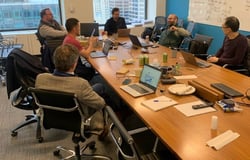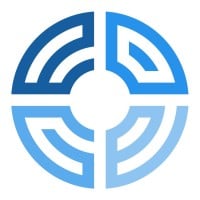About the Position
We’re looking for smart and curious individuals from academia to join our growing team and drive our ML work.
On our Machine Learning team, you'll build the deep learning models that power our trading strategies, supported by our rapidly growing computing cluster with thousands of H100s/200s. Trading poses unusual challenges—extreme latency constraints, large datasets, complex feedback loops, and a high level of noise—that force us to search for novel tricks.
Researchers, engineers, and traders sit a few feet away from each other and work together to train models, architect systems, and run trading strategies. Depending on the day, we might be diving deep into market data, tuning hyperparameters, debugging distributed training performance, or studying how our model likes to trade in production.
You’ll be focused on optimizing the performance of our models—both training and inference. We care about efficient large-scale training, low-latency inference in real-time systems and high-throughput inference in research. Part of this is improving straightforward CUDA, but the interesting part needs a whole-systems approach, including storage systems, networking, and host- and GPU-level considerations. Zooming in, we also want to ensure our platform makes sense even at the lowest level—is all that throughput actually goodput? Does loading that vector from the L2 cache really take that long?
About You
If you’ve never thought about a career in finance, you’re in good company. Many of us were in the same position before working here. If you have a curious mind and a passion for solving interesting problems, we have a feeling you’ll fit right in. There’s no fixed set of skills we are looking for, but you should have:
- An understanding of modern ML techniques and toolsets
- The experience and systems knowledge required to debug a training run’s performance end-to-end
- Low-level GPU knowledge of PTX, SASS, warps, cooperative groups, Tensor Cores, and the memory hierarchy
- Debugging and optimization experience using tools like CUDA GDB, Nsight Systems, Nsight Computesight-systems, and nsight-compute
- Library knowledge of Triton, CUTLASS, CUB, Thrust, cuDNN, and cuBLAS
- Intuition about the latency and throughput characteristics of CUDA graph launch, tensor core arithmetic, warp-level synchronization, and asynchronous memory loads
- Background in Infiniband, RoCE, GPUDirect, PXN, rail optimization and NVLink, and how to use these networking technologies to link up GPU clusters
- An understanding of the collective algorithms supporting distributed GPU training in NCCL or MPI
- An inventive approach and the willingness to ask hard questions about whether we're taking the right approaches and using the right tools
If you're a recruiting agency and want to partner with us, please reach out to [email protected].
Top Skills

What We Do
Jane Street works differently. As a liquidity provider and market maker, we trade on more than 200 trading venues across 45 countries and help form the backbone of global markets. Our approach is rooted in technology and rigorous quantitative analysis, but our success is driven by our people.
Our bright, beautiful offices in the heart of New York, London, Hong Kong, and Amsterdam are open and buzzing with conversation. We come from many backgrounds and encourage travel between offices to share perspectives. Some of our best ideas come from bumping into a visiting colleague at the office coffee bar.
Markets move fast. Staying competitive as we’ve grown has required constant invention—of new trading strategies, technology, and processes. We’ve found this is easier when you hire humble, kind people. They tend to help each other, and prioritize teamwork over titles.
We invest heavily in teaching and training. There’s a library and a classroom in every office, because deepening your understanding of something is considered real work. Guest lectures, classes, and conferences round out the intellectual exchanges that happen every day.
People grow into long careers at Jane Street because there are always new and interesting problems to solve, systems to build, and theories to test. More than twenty years after our founding, it still feels like we’re just getting started.


_1.png)







